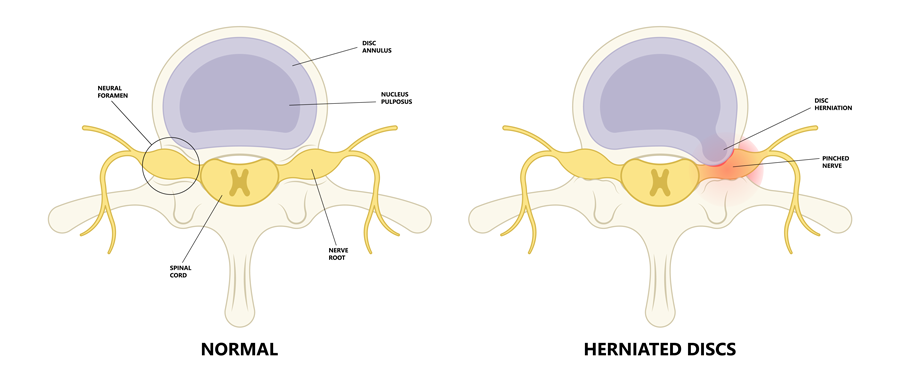Written by: Stephen P. Banco, MD, FAAOS
Board-Certified, Fellowship-Trained Orthopaedic Spinal Surgeon
Surgery for a herniated disk can offer significant benefits over conservative management, which may include rest, physical therapy, medications, and other non-surgical interventions. One study by Gugliotta and colleagues found that patients who underwent surgery for a lumbar herniated disk experienced faster and more complete relief of symptoms compared to those who received non-surgical treatment.
The study by Gugliotta and colleagues compared the outcomes of 50 patients with lumbar herniated disks who underwent surgery to 50 patients who received non-surgical treatment. The surgical group had a significantly higher rate of improvement in pain, disability, and quality of life compared to the non-surgical group. The surgical group also had a shorter time to return to work and a lower incidence of re-operation compared to the non-surgical group.

One of the key benefits of surgery for a herniated disk is the ability to directly address the underlying issue causing symptoms. Surgery can provide decompression of the nerve root or spinal cord, which can alleviate pressure and inflammation and improve symptoms. Additionally, surgery can provide a more permanent solution to the problem, as conservative management may only provide temporary relief.
Overall, the study by Gugliotta and colleagues suggests that surgery for a herniated disk can offer significant benefits over conservative management. However, it is important to note that surgery is not always necessary or appropriate for every patient with a herniated disk. The decision to undergo surgery should be made on a case-by-case basis, taking into account the individual patient’s symptoms, medical history, and other factors.

